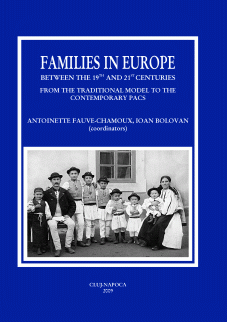19th Century Family Life and Women’s Roles in Transylvanian Literature(s)
19th Century Family Life and Women’s Roles in Transylvanian Literature(s)
Author(s): Imola Katalin NagySubject(s): Literary Texts
Published by: Centrul de Studiere a Populaţiei
Keywords: patriarchal family pattern; monoparental family; shifting roles; absent father; mother with masculine identity; self-made woman
Summary/Abstract: This paper proposes to compare Ioan Slavici’s Mara and János Kemény’s The Witch of Waters, in point of the most important thematic interferences. Both novels debate upon the topics of Family and Womanhood in the context of the Transylvanian small town or rural society in the second half of the 19th Century. We have approached issues like single parenthood, male and female roles, family interactions etc. In Slavici’s and Kemény’s fiction the traditional patriarchal family pattern is still very strong, but symptoms of its alteration show up. When the Father figure disappears, the family becomes monoparental mothers take up masculine traits, roles and behaviours. The two authors portray a world of transition from traditional society to a modern one, where previously established norms start to become relative, and all the changes that occur announce the next Century.
Journal: Romanian Journal of Population Studies
- Issue Year: 3/2009
- Issue No: Supplement
- Page Range: 723-742
- Page Count: 19
- Language: English
- Content File-PDF

